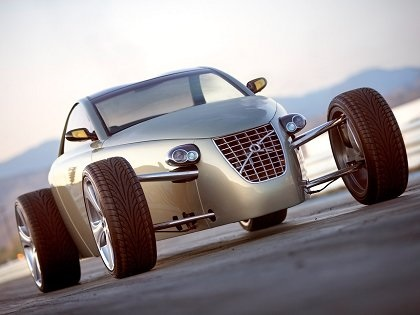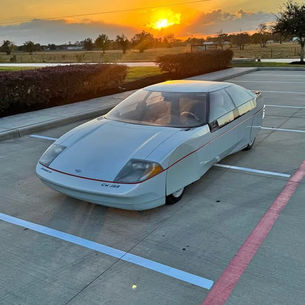2001 Toyota FCHV-4 Concept
- Story Cars

- Mar 11, 2024
- 1 min read
The 2001 FCHV-4 Concept represented Toyota's latest experimental fuel cell hybrid vehicle, showcasing advancements in fuel cell technology and hybrid power sources. This sports utility vehicle incorporated a fuel cell and a battery, ensuring a constant supply of electrical power. The vehicle was powered by pure compressed hydrogen, and its Toyota FC stack outputted an impressive 90kW, providing a top speed of over 150 km/h and a cruising range of 250 km or more. The FCHV-4 was designed to emit only water vapor, making it a cleaner and more efficient alternative.
The fuel cell technology in the FCHV-4 worked on the principle of reverse electrolysis. Using stacks of proton exchange membranes, each only a few tenths of a millimeter thick, the fuel cell allowed only the proton of the hydrogen molecule to pass through. This process created the voltage differential that powered the car. The overall efficiency of the FCHV-4 was highlighted as it was more than twice as efficient as a gasoline-powered automobile, emphasizing its environmentally friendly nature.
Toyota undertook road testing of the FCHV-4 in Japan, being the first fuel cell hybrid vehicle licensed for testing on public roads in the country. The tests, conducted over a three-year period starting in June 2001, evaluated the car's performance on highways, steep hills, and other demanding environments. Additionally, Toyota was involved in road testing in the USA through the California Fuel Cell Partnership (CaFCP), a collaborative effort including government agencies, energy companies, auto manufacturers, and fuel cell stack manufacturers. The tests in California, which began in July 2001, contributed to the collective effort to lay the foundation for fuel cell commercialization.
Source & Images: Toyota












































Comments